-
White supremacists use social media aid, abet terror
Before carrying out mass shooting attacks in Pittsburgh and New Zealand, white supremacist terrorists Robert Bowers and Brenton Tarrant frequented fringe social networking sites which, according to a new study, serve as echo chambers for the most virulent forms of anti-Semitism and racism, and active recruiting grounds for potential terrorists.
-
-
IS claims responsibility for deadly Sri Lanka blasts
The Islamic State group said Tuesday, without providing evidence, that it was responsible for a series of blasts in Sri Lanka that killed more than 300 people and injured hundreds of others on Easter Sunday. Also Tuesday, Sri Lanka’s state minister of defense told parliament that those who carried out the attacks did so in retaliation for attacks at two mosques in Christchurch, New Zealand last month.
-
-
Sri Lanka attacks: government’s social media ban may hide the truth about what is happening
Sri Lanka has temporarily banned social media and messaging apps in the wake of the coordinated Easter Sunday attacks on churches and hotels across the country, which killed at least 290 people. The ban is ostensibly to stop the spread of misinformation – but in Sri Lanka Facebook and social media platforms generally have created a positive space for public conversation that did not exist before. Shutting down social media, leaving its citizens reliant on state messaging and a weak and beaten down form of journalism, the government now risks preventing Sri Lankans from finding out the truth about what is happening in their fragile and delicately balanced country.
-
-
Nearly 300 killed, 500 injured in Easter Sunday attacks on churches, hotels in Sri Lanka
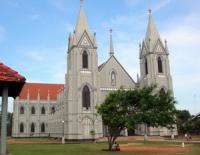
In the worst wave of terrorist violence in Sri Lanka in ten years, a series of blasts on Sunday have hit churches and hotels in and near the Sri Lankan capital, Colombo. The nearly simultaneous blasts targeted churches during Easter services and hotels frequented by foreign guests. Sri Lankan officials said 290 people, including at least 27 foreigners, had been killed in the blasts in Colombo and elsewhere. More than 500 more have been injured.
-
-
Sri Lanka attacks among the deadliest terrorist attacks since 9/11
The Sunday attacks in Sri Lanka – nearly 300 killed and more than 500 injured — places the bombings on a par with other high-casualty terrorist atrocities since September 11, the single deadliest terrorist attack in history, in which 2,977 people were killed.
-
-
The first lone-wolf terrorist
Muharem Kurbegovic is considered the first “lone-wolf” terrorist. He was born in Sarajevo in 1943 and immigrated to the United States in 1967 to pursue a career in engineering. In 1973 he launched a series of bombing in and around Los Angeles. What especially alarmed the authorities was his interest in building chemical weapons, including nerve-gas munitions, to use in his planned attacks:
-
-
Analyzing lone-actor terrorism in context
Assessing and managing the risk of lone-actor terrorism is a challenge, as events around the world continue to show. Noémie Bouhana of the Department of Security and Crime Science at University College London suggests a shift in focus from “who and why” to “who and where.” This approach is captured in the S5 framework, which builds on the findings of PRIME, an international project led by Bouhana and funded by the European Commission to understand and counter lone-actor terrorism.
-
-
UN calls for repatriation of IS wives, children in Syria
The U.N. Office for the Coordination of Humanitarian Affairs (OCHA) is calling on countries to repatriate thousands of wives and children of Islamic State militants in Syria, who are living in dire conditions in the al-Hol camp in al-Hasakeh governorate in northeast Syria.
-
-
Deterring Russian intimidation and aggression: Unconventional approaches
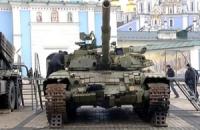
Amid concerns that Estonia, Latvia and Lithuania are vulnerable to Russian intimidation and hybrid warfare, experts conclude that unconventional defense plans could help deter and counteract Russian aggression.
-
-
Exposure to mass violence on the media leads to cycle of distress
The more people watch, listen or scroll through hours of news coverage of events such as terrorist attacks, the more likely they are to develop stress symptoms that in turn increase their media consumption during the next mass violence event, according to a nationwide study.
-
-
U.S. allows lawsuits against foreign companies using property seized by Cuba
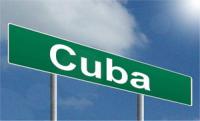
The U.S. will allow U.S. citizens to sue foreign companies and individuals who use property confiscated from them decades ago by the government of then-Cuban leader Fidel Castro. The decision likely will hinder Cuba’s efforts to encourage foreign investment to the island.
-
-
Social media networks aid, abet white supremacist terrorism: Study
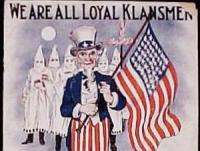
A new study reveals how fringe social media sites such as Gab, 4 Chan and 8chan act like virtual “round-the-clock white supremacist rallies” where hateful notions of Jews and other minorities are openly espoused and closely associated with violence as a solution.
-
-
New air link evidence of Iran's growing influence in Venezuela
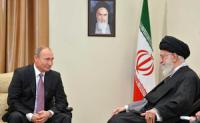
This month’s re-opening of an air link between Tehran and Caracas as the latest evidence of Iran’s growing role alongside Russia and Cuba in bolstering the multilayered security apparatus keeping Venezuelan President Nicolas Maduro in power.
-
-
Russia targeted Sanders supporters, pushing them to vote for Trump
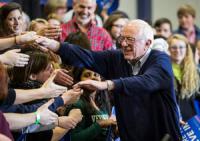
As part of Russia’s broad 2016 effort to ensure Donald Trump’s victory in the presidential election, Russian hackers targeted supporters of Senator Bernie Sanders (I-Vermont), following his primary loss in 2016, trying to push them to vote for Donald Trump instead of Democratic nominee Hillary Clinton. Daren Linvill, the Clemson University researcher who conducted the research of the Russian campaign, said the Russians saw Sanders as “just a tool.” “He is a wedge to drive into the Democratic Party,” resulting in lower turnout for Clinton, he said.
-
-
Studying Perry Mason to combat “innocence fatigue”
Forensic science historian Professor Ian Burney is studying the influence of Erle Stanley Gardner, creator of renowned TV attorney Perry Mason, in a bid to reveal the roots of the fascination with stories about wrongful criminal conviction. Burney hopes the study will help better understand some of the challenges facing today’s worldwide “innocence projects.”
-
More headlines
The long view
Factories First: Winning the Drone War Before It Starts
Wars are won by factories before they are won on the battlefield,Martin C. Feldmann writes, noting that the United States lacks the manufacturing depth for the coming drone age. Rectifying this situation “will take far more than procurement tweaks,” Feldmann writes. “It demands a national-level, wartime-scale industrial mobilization.”
No Nation Is an Island: The Dangers of Modern U.S. Isolationism
The resurgence of isolationist sentiment in American politics is understandable but misguided. While the desire to refocus on domestic renewal is justified, retreating from the world will not bring the security, prosperity, or sovereignty that its proponents promise. On the contrary, it invites instability, diminishes U.S. influence, and erodes the democratic order the U.S. helped forge.
Fragmented by Design: USAID’s Dismantling and the Future of American Foreign Aid
The Trump administration launched an aggressive restructuring of U.S. foreign aid, effectively dismantling the United States Agency for International Development (USAID). The humanitarian and geopolitical fallout of the demise of USAID includes shuttered clinics, destroyed food aid, and China’s growing influence in the global south. This new era of American soft power will determine how, and whether, the U.S. continues to lead in global development.
Water Wars: A Historic Agreement Between Mexico and US Is Ramping Up Border Tension
As climate change drives rising temperatures and changes in rainfall, Mexico and the US are in the middle of a conflict over water, putting an additional strain on their relationship. Partly due to constant droughts, Mexico has struggled to maintain its water deliveries for much of the last 25 years, deliveries to which it is obligated by a 1944 water-sharing agreement between the two countries.
How Disastrous Was the Trump-Putin Meeting?
In Alaska, Trump got played by Putin. Therefore, Steven Pifer writes, the European leaders and Zelensky have to “diplomatically offer suggestions to walk Trump back from a position that he does not appear to understand would be bad for Ukraine, bad for Europe, and bad for American interests. And they have to do so without setting off an explosion that could disrupt U.S.-Ukrainian and U.S.-European relations—all to the delight of Putin and the Kremlin.”
How Male Grievance Fuels Radicalization and Extremist Violence
Social extremism is evolving in reach and form. While traditional racial supremacy ideologies remain, contemporary movements are now often fueled by something more personal and emotionally resonant: male grievance.
